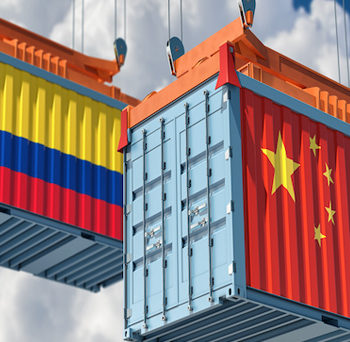
Discover The Key Transformations in Labor Matters in Mexico
- Posted by México
- On Thursday July 6th, 2023
- 0 Comments
Several significant changes have taken place in the Mexican job market, with a focus on promoting workplace well-being and flexibility. These changes address key aspects such as stress management, teleworking regulations, increased minimum wage, and improved vacation policies. Let’s explore these transformations in detail.
- Creation of NOM-035: Addressing Psychosocial Risks and Workplace Violence.
In 2018, the Mexican Ministry of Labor and Social Welfare (STPS) introduced NOM-035, a norm aimed at preventing and identifying psychosocial risk factors and workplace violence. Since its enforcement on October 23, 2019, companies across the country have gradually implemented this norm. NOM-035 encourages companies to foster a culture centered on employee well-being and develop policies through continuous dialogue with their workforce. - Teleworking Regulation: Recognizing Home Office as a Legitimate Employment Model.
Effective January 12, 2021, the labor authority recognized teleworking or home office as a valid employment modality through reforms to Article 311 of the Federal Labor Law. This recognition came as a response to the growing prominence of teleworking, particularly during the pandemic, which shattered the misconception that workers need constant supervision to be productive. The Mexican Ministry of Labor and Social Welfare estimated that approximately 13 million people in Mexico are capable of working remotely. - Introduction of NOM-037: Ensuring Occupational Health and Safety in Teleworking.
Published on October 2, 2022, in the Official Gazette of the Federation, NOM-037 came into effect on December 2 of the same year. This norm establishes minimum safety and hygiene measures to protect teleworkers from occupational risks. Among the responsibilities for companies is respecting workers’ right to adequate rest and digital disconnection, as well as promoting mental and physical health. Although the norm doesn’t specify a fixed amount, employers are expected to provide teleworkers with the necessary resources to perform their duties remotely, including support for utilities like electricity and internet. - Increase in Minimum Wage: Enhancing Workers’ Financial Well-being.
Under President Andrés Manuel López Obrador’s administration, the minimum wage in Mexico has experienced a significant increase. Starting from $88.36 pesos at the beginning of the six-year term, it reached $207.44 pesos in general and $312.41 pesos in the Northern Border Free Zone as of January 1, 2023. This represents a 135% increase over a five-year period. Although the COVID-19 pandemic caused a lower adjustment in 2021 (15% increase to $141.20 pesos), the subsequent years have continued to benefit millions of Mexicans, according to the Secretary of Labor, Luisa María Alcalde. - Approval of “Vacaciones Dignas” (Dignified Vacations): Expanding Paid Time Off.
A proposal by Senator Bertha Alicia Caraveo in September 2022 led to a reform of Articles 76 and 78 of the Federal Labor Law. This reform, effective January 1, 2023, ensures that Mexican workers are entitled to a minimum of 12 days of paid vacation annually, doubling the previous requirement of six days. The reform further stipulates a gradual increase in vacation days, adding two days per year until reaching a total of 20 days, with an additional two days for every five years of service.
Conclusion:
While there are still labor-related issues awaiting regulation, these significant changes in the Mexican job market have paved the way for more productive employees, a stronger sense of belonging within organizations, and reduced stress levels. These advancements demonstrate a commitment to workplace well-being, flexibility, and improved working conditions for Mexican or expatriates workers living in México.




0 Comments